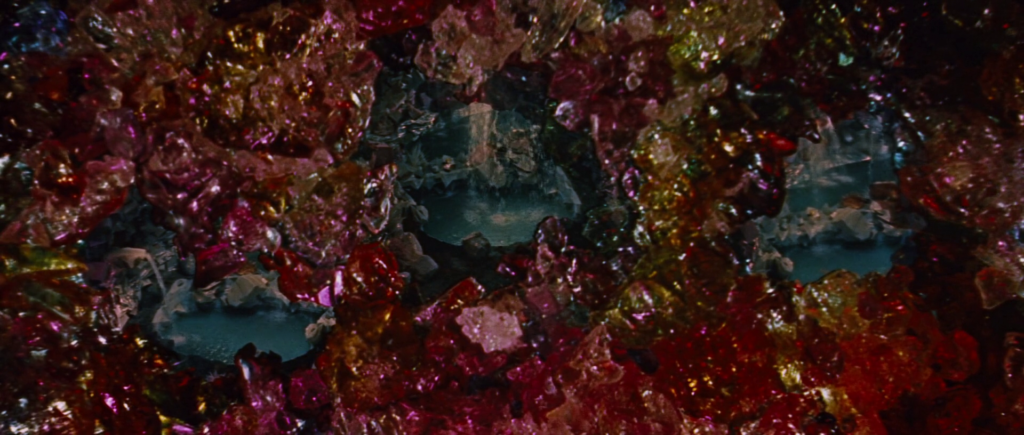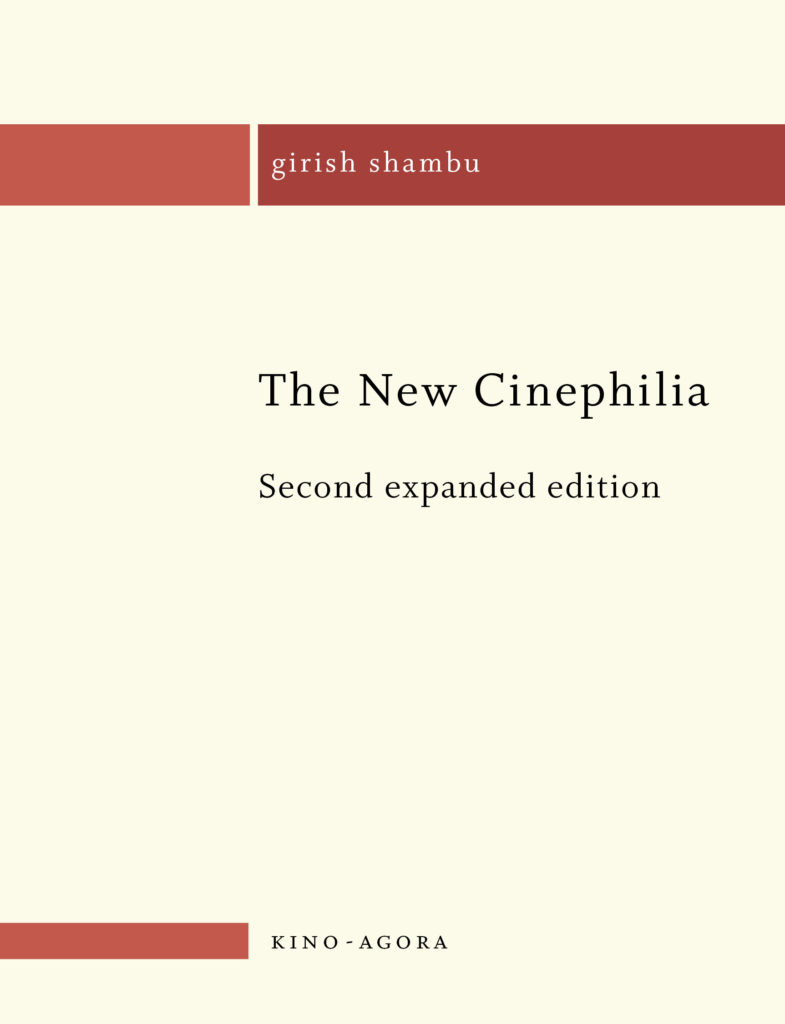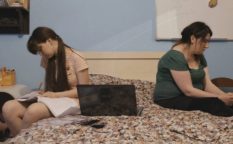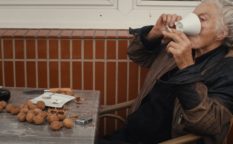Reflections 11
What does it mean to share an experience? If we sit in the dark, together – apart – and look straight ahead at a great, big canvas, are we interacting with the screen or with each other?
In Kevin B. Lee’s video essay, Explosive Paradox, he takes on the resonance of the cinema-going experience. Once an AMC, now a Bevmo! (wine and liquor store), Lee films the outside of what was a movie theatre, as masked customers queue for the goods. It’s easy to see where the neon marquee would have been, and to imagine the masked customers are part of a bustling queue for tickets – it might even be easier to imagine this now than before, when the entire act of cinema-going is theoretical to me. Lee goes on to talk about seeing Platoon (1986) when he was a kid, and the fractured meanings (in this instance, as multiple movies) its explosive paradox caused.

The movie Lee saw was not the same one his father did, though they saw it together. It was not the same as what the other kids at his school had seen, either. The movie Lee saw made him physically shake and cry, yet it lives alongside and interacts with the more stoic and taunting versions that his father and school peers saw. This is the same intersection as cinephilia – between and around, interplaying. The Cine-files, where Lee’s video essay sits, awaiting its audience, is intended “to provide a meeting ground for film lovers to share their serious reflections on the cinema.” Perhaps our reflections are better shared than the experience itself. When we share, we don’t necessarily tell, use, or enjoy. Sometimes to share is to possess a part of something, and our cinephilic interactions after the fact are a form of hyper-catharsis, where we re-tell, re-enact, and re-(sign)post our personal possession.
The current issue (15) of Cine-Files has video essayists respond to the topic “Once Upon a Screen”. Adrian Martin reflects on the sublime cinemascope of his childhood with Journey to the Centre, made with Cristina Álvarez López. Cormac Donnelly explicates the experience of knowing a film intimately before ever seeing it, thanks to the shared experience of playground discourse. And Jessica McGoff’s My Mulholland reveals what happens when you remove the cinema-going experience and replace it with the solo experience of home computer viewing and endless internet scrolling, complete with chat rooms and message boards. Sentiments, opinions, and even intentions (here in the shape of Screamer videos) are shared, but the feeling, the embodied experience beyond the webcam reaction shot or the typed-out response, that remains deeply personal. McGoff describes it thus, “This was my first glimpse into how it often feels to be on the internet. Like being present in your body but not entirely in control of it… A peek into the world of an image regime: an increasingly rapid flow of images, heightening reactions, demanding immediacy, and levelling both the banal and the terrible.” It all exists, simultaneously, even. It is almost pervasive. We can all engage with it, because film – cinema, despite its ticket price, is a great leveller. And yet it is only ever located inside you.

The image regime offers us horror and beauty in equal measure – often even suggesting the two are synonymous in the name of art. For Lee and McGoff, descriptions of the films made them want to see them more. Explosive Paradox even starts with a row of four stars, such that we might see on movie posters or in newspapers or web-based film reviews. Soon surrounded by critical acclaim, the experience of Platoon is cerebrally shared even if it is embodied individually.
Criticism itself is this explosive paradox. Though it is possible that film critics see and review films for others, I have sat on my share of panels to know well enough that film critics also (and in some instances, only) see films for themselves. The critical act of viewing creates its own version of the movie, and one that rarely imagines what it might be like for a different embodied self to see it. This is why star ratings exist: to condense and package the intersection between opinion and manufactured experience (the conditions under which most critics see films is far from ‘organic’ cinema-going). But where, then, does the embodied experience go?
Furthermore, if our experiences are accumulative, as Girish Shambu suggests in The New Cinephilia, “As the years pass, everything we’ve read, thought, talked or written about a film joins our viewing memories to form a big agglomeration, a large ‘sedimented accumulation’, a personal, cinephilic memory-cloud that is forever changing and on the move,” then how can feeling become shared and remain embodied? Can it be less about possessing, about owning image-experience?
I went to the cinema in a dream. And afterwards, I went to a shopping mall – not like the ones in the UK, where I live, but like the ones in Australia, where all of my seminal cinema-going experiences took place. In this mall, I joined a queue to use the facilities. While waiting, I realised that I had forgotten to wear a mask. No one else was wearing one, either. I fled the complex in a state of panic. How had I ‘forgotten’ there was a pandemic? Cinema. I’d been in a cinema and that meant the world was ‘normal’ again. Only I knew it wasn’t. There was a feeling somewhere inside me that I did not share the experience of others, that I was not okay breathing in the same air others were breathing out. I did not want to share breath, to share droplets of experience or being. I wanted to get out. I wanted the fresh air of the outdoor expanse, and then of the private airspace of my personal vehicle.
















